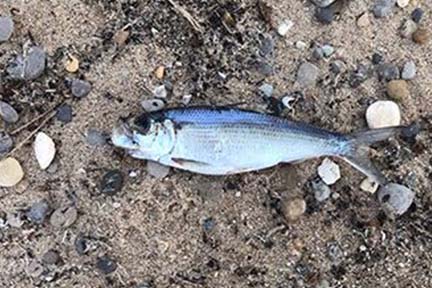
Extreme speeds during the pandemic captures police attention
|

|

FOR IMMEDIATE RELEASE
June 27, 2022
Contact: Press@michigan.gov
Governor Whitmer Signs Bills to Lower Health Care Costs and Increase Public Safety, Among Other Legislation
LANSING, Mich. — On Friday, Governor Gretchen Whitmer signed six bipartisan bills — House Bills 4173, 4799, 4800, 5659, and 5660 and Senate Bill 447 — bringing the total of bipartisan bills signed by Governor Whitmer to 865.
“I am proud to sign six bipartisan bills,” said Governor Whitmer. “Since I took office, I have signed 865 bipartisan bills, and our record of effective collaboration will help us stay focused on growing Michigan’s economy, creating good-paying jobs, and lowering costs. Let’s continue to work together to get things done that put Michiganders first.”
Lowering Health Care Costs
Senate Bill 447 fosters more competitive health care pricing by increasing transparency surrounding costs and coverage. This bill requires an insurer to provide a large employer group customer with specific information about costs of its insurance plan upon request.
“Everyone knows insurance is a major cost in our lives. I’m glad the legislature and the Governor were able to support this change which can lead to greater transparency and lower insurance costs for the people of Michigan,” said state Senator Dan Lauwers (R-Brockway Township)
Senate Bill 447 was sponsored by Sen. Dan Lauwers, R – Brockway Township, and a copy can be found here.
Increasing Public Safety in Communities
House Bill 4173 will help communities stay safe by increasing the maximum allowable reward that county boards of commissions can offer and pay an individual for information that leads to the arrest or conviction of criminal suspects. Under previous law, the reward was limited to $2,000.
“This common sense law will improve public safety and help with criminal investigations. I’m grateful that this additional tool will be available to Michigan counties,” said state Representative Kara Hope (D-Holt)
House Bill 4173 was sponsored by Rep. Kara Hope, D – Holt, and a copy can be found here.
Expanding Renter Rights
House Bill 4799 creates the Michigan Uniform Assignment of Rents Act (MUARA) which provides and regulates rights and responsibilities for renters, landlord-borrowers and creditors. House Bill 4799 was sponsored by Rep. Graham Filler, R – DeWitt, and a copy can be found here.
House Bill 4800 is tie-barred to House Bill 4799 and specifies that an action to enforce an assignment of rents under MUARA would not be an action to recover debt for the purposes of foreclosure.
“The work done on this bipartisan legislation will bring needed stability and clarity to our Uniform Assignment of Rent laws,” said state Representative Kyra Harris Bolden (D-Southfield).” I am proud to have worked across the aisle to revise outdated statue with common sense solutions that will benefit Michiganders.”
House Bill 4800 was sponsored by Rep. Kyra Harris Bolden, D – Southfield, and a copy can be found here.
Protecting Vulnerable Michiganders
House Bills 5659 and 5660 together increase transparency in adult care facilities and nursing home facilities by requiring reports containing feedback and input from inspectors of these facilities that are regulated by the Bureau of Community Health Systems.


FOR IMMEDIATE RELEASE June 22, 2022 Contact: press@michigan.gov
Gov. Whitmer Statement on President’s Support to Temporarily Pause the Federal Gas Tax to Save Michiganders Money at the Pump
LANSING, Mich. – Governor Gretchen Whitmer issued the following statement after President Biden called for a temporary pause of the federal gas tax. In March, Governor Whitmer sent a letter to Congress calling on the federal government to pass the Gas Prices Relief Act to suspend the federal gas tax, and on Tuesday she urged President Biden to support a federal gas tax holiday and work with Congress to get this done. She has also called for a temporary suspension of the state sales tax on gas, which would save drivers nearly 50 cents a gallon when combined with a temporary pause of the federal gas tax.
“Americans are feeling the pain at the pump with gas reaching $5 a gallon this month, so I am glad that President Biden is calling for a temporary suspension of the federal gas tax. If we suspend the Michigan sales tax on gas and also get this done, we can save families nearly 50 cents a gallon right now.
“Here in Michigan, I am focused on providing even more relief to families by putting more money in their pockets as they face rising prices on everything from gas, groceries, and everyday expenses. In March, I called for a temporary suspension of the state sales tax on gas, and last month, I proposed MI Tax Rebate Right Now, a plan to send $500 to Michigan’s working families right away. I will work across the aisle with the Michigan Legislature and use every tool at my disposal to ensure working families can pay the bills and put food on the table.
“The American people are counting on all of us to provide real relief right now so they can pay the bills and put food on the table. I am confident that President Biden and Congress can work together to temporarily pause the federal gas tax, and in Michigan, I will continue finding creative ways to put money back in people’s pockets.” |

 |
||||
DNR News |
||||
|
||||
| We recently launched a new website, and we’d love to hear what you think via this brief survey. Thanks for helping us improve our site for all users! |

Press Release FOR IMMEDIATE RELEASE: June 21, 2022 CONTACT: Chelsea Wuth, 517-241-2112, WuthC@michigan.gov Children ages 6 months through 4 years now eligible for COVID-19 vaccine LANSING, Mich. – The Michigan Department of Health and Human Services (MDHHS) announces that all Michiganders ages 6 months and up are now eligible for a COVID-19 vaccine. The pediatric vaccine, which received emergency use authorization for this age group from the U.S. Food and Drug Administration (FDA), was recommended by the U.S. Centers for Disease Control and Prevention’s (CDC) Advisory Committee on Immunization Practices (ACIP) on June 18, 2022. “Today parents of young children can breathe a sigh of relief as Michiganders 6 months and up are eligible to get their safe, effective COVID-19 vaccine,” said Governor Gretchen Whitmer. “Parents have been patiently waiting for a vaccine for younger children for years, and now we are ready to help our little ones get the best protection. I am grateful to every Michigander who has gotten their COVID vaccine, taking action to keep themselves, and all our friends, families and neighbors safe. I urge parents to get their children vaccinated so they can enjoy their summer and get ready for the fall, knowing they are protected.” MDHHS is recommending providers begin vaccinating children ages 6 months and up as soon as possible. It is anticipated that both vaccines could be available as early as today. The Moderna series is two doses given 28 days apart for ages 6 months through 5 years. For children 6 months of age through 4 years, the Pfizer series is three doses, the first two given three weeks apart and the third dose administered at least eight weeks after the second dose. For ages 5 and older, the Pfizer series is two doses given 21 days apart. “Being able to vaccinate children ages 6 months and up with safe and effective COVID-19 vaccines is a significant milestone that brings us hope and protects our littlest Michiganders,” said Dr. Natasha Bagdasarian, MDHHS chief medical executive. “These vaccines are incredibly effective in preventing severe illness, disease and hospitalizations. Even healthy children can suffer serious affects from COVID-19, not just those with underlying conditions. We recommend parents and guardians talk to their child’s medical provider or their local health department about the pediatric vaccine and how it offers protection.” More than 500,000 Michigan children under the age of 5 will now be eligible to receive the vaccine. MDHHS recommends all eligible children get vaccinated and stay up-to-date on vaccines even if they have previously had COVID-19. Children younger than 5 can receive vaccine from a primary care provider, local health department or federally qualified health center. Some pharmacies will vaccinate ages 3 and up. Visit Vaccines.gov for nearby vaccine locations – age specific information will soon be available. “We are extremely grateful to now be able to vaccinate nearly all residents in our state,” said MDHHS Director Elizabeth Hertel. “It is important to get children ages 6 months and up vaccinated as quickly as possible to save even more lives and reduce serious illness across our communities, and we want to remind everyone to get boosted if they are eligible. Getting the safe and effective vaccine is an effort that every eligible Michigan resident can take to reduce the spread of COVID-19 and its variants. Working together we can help keep our families safe and healthy.” In Michigan, there have been more than 427,000 confirmed COVID cases in those age 19 and younger, and 44 deaths have been reported in ages 0 to 19 as of June 15. “As a mother, pediatrician, and internist I have seen first-hand the disrupting effects of COVID-19 on our daily lives, even when patients do not end up in the hospital,” said Dr. Amy Hepper, Clinical Assistant Professor of Internal Medicine and Pediatrics at Michigan Medicine. “I am very excited that this new phase of COVID-19 vaccine approvals for our littlest patients will allow children and their families to continue to return to normal with less disruptions to school, work and family life. These vaccines have been in use for the past 18 months in larger doses for older children and adults. I am confident that they are safe and effective with no long-term effects, and I have already begun recommending them to my patients.” Vaccination is the best protection against COVID-19. To date, more than 6.7 million Michiganders have received at least one dose of the COVID-19 vaccines. Michigan residents seeking more information about the COVID-19 vaccine can visit Michigan.gov/ For the latest information is available visit Michigan.gov/Coronavirus and C |